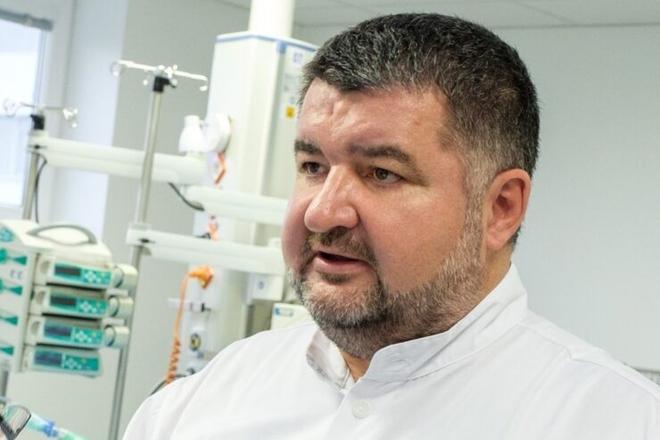Prime Minister Robert Fico underwent a difficult five-hour surgery after the attempt on his life on May 15. Therefore, many were surprised when he was discharged into home care a little over two weeks later.
Anaesthesiologist Jozef Valky, head of the Department of Anesthesiology and Intensive Care Medicine at Roosevelt Hospital in Banská Bystrica, where Fico was taken after the shooting, has given an interview to the Postoj news website about the challenges and responsibilities that accompanied the care of the premier, and his rapid recovery.
Treating the premier was a challenge for doctors
Fico's shooting in Handlová was an exceptional situation that brought significant pressure on the entire medical team.
"My life stopped functioning for two weeks," Valky said, describing how he and his colleagues tried to keep the department running as normally as possible.
The hospital continued with regular operations, including three liver transplants, despite increased security measures and the presence of guards.
Caring for severely injured patients is not an everyday occurrence, even in the best hospitals. "Everyone asked us if we had experience with similarly seriously injured patients. We don't have many, and almost no one does," Valky admitted.
However, thanks to excellent teams, including doctors with international experience from war zones, as well as modern trauma-centre equipment, they managed to stabilise and treat the prime minister.
Valky emphasised that the psychological pressure was enormous. "If we had failed, I can't imagine what would have happened in Slovakia," he said. The entire team approached the prime minister as an ordinary patient, which helped manage the situation professionally.
"We set clear rules to ensure our department and the entire hospital did not lose their composure," he explained.
Why was there minimal communication with the media?
During Fico's care, the hospital did not communicate directly with the media, which sparked speculation. Valky explained that this was intentional.
"We are doctors here to care for the patient," he said, adding that the political battle would continue regardless of who provided the information. "I personally asked the hospital management to cut us off from press conferences with journalists."
As he explained, the hospital management received detailed information about Fico's condition. This information was then passed on to Deputy PM and Defence Minister Robert Kaliňák of the Smer party.
"I read Kaliňák's statements, which he released to the media. They were a significant simplification of what we sent to the hospital management," the doctor said. "But there was never any falsehood in it. The minister stated what was true, and he did so very concisely."
Fico's physical condition before the assassination attempt and his attitude were crucial to his quick recovery, the doctor noted.
"The patient was in very good physical condition before. He recovered surprisingly quickly," Valky noted. The prime minister underwent multiple surgeries, highlighting the severity of his injuries but also the success of the medical care.
Valky, who has worked at the hospital for 34 years, expressed his pride in his colleagues and the entire team for handling the challenging situation effectively.



 Anaesthesiologist Jozef Valky, head of the Department of Anesthesiology and Intensive Care Medicine at Roosevelt Hospital in Banská Bystrica. (source: Archív FNsP F. D. Roosevelta, Denník Postoj)
Anaesthesiologist Jozef Valky, head of the Department of Anesthesiology and Intensive Care Medicine at Roosevelt Hospital in Banská Bystrica. (source: Archív FNsP F. D. Roosevelta, Denník Postoj)